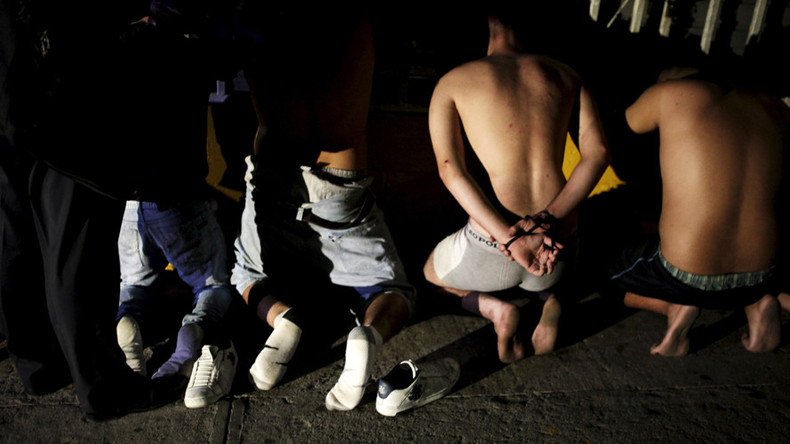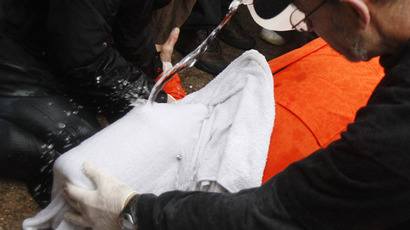‘Prior to 9/11 terrorist attacks, CIA never trained in torture methods’

In the aftermath of 9/11 that led to these extreme measures, ignorant people who were not professional intelligence officers were allowed to make these decisions, Larry Johnson, retired CIA and State Department official, told RT.
A US federal appeals court Friday rejected efforts to fully disclose a CIA torture report compiled by the Senate in 2014. It contains findings that CIA officers interrogated detainees using enhanced torture techniques. Only a fraction of the cases have been made public.
RT: Why has the appeals court rejected efforts to disclose the CIA torture report?
Larry Johnson: I am not a lawyer, so I don’t know what their legal rationale is. I simply note that it is important to disclose this information just from the standpoint of trying to reestablish some measure of honor in an intelligence service that has been severely tarnished by these past actions.
RT: What is the logic though? If what you say is true, presumably they are aware that could damage the reputation of the CIA a bit further. So why they would say they don’t want to disclose this further?
LJ: Well, it can very well implicate higher-ups and show that clearly this activity was carried out with the knowledge, permission, and at the direction up to including President George W. Bush. So it is an effort perhaps to try to shield them from further potential litigation on the international front such as in the international court in The Hague. The case could be made that they are protecting sources and methods. But in reality it’s a poor excuse. It is a shameful period, I think it should be disclosed, but certainly my voice is not the determining factor in this.
RT: What sort of pressure, do you think, could be put on the court or the judicial system?
LJ: Here is sort of the irony. I mean it has been labeled ‘CIA torture technics’, but the reality was, prior to 9/11, while there had been some abuses in the past, the CIA, and particularly operations officers, they were never trained in interrogation methods; they were never trained in torture. Why?
Russian intelligence officers know this as well as we do, and even the former KGB: you don’t get your best recruits through coercion, through pressure, through pain. You get your best recruits by getting people who like you; that you have developed a relationship with; which you’ve developed rapport with. So what happened in the aftermath of 9/11 that led to these extreme measures, was really an example where ignorant people who were not professional intelligence officers were allowed to make these decisions. And unfortunately, there were some professional intelligence officers that acquiesced. Several should have properly stood up, threatened to quit and to go public. Unfortunately they did not – they went along with it. But you had political hacks, who allowed this nonsense to come into the intelligence service, and in the process it creates this entire stain upon what the intelligence service was supposed to be.
The statements, views and opinions expressed in this column are solely those of the author and do not necessarily represent those of RT.













